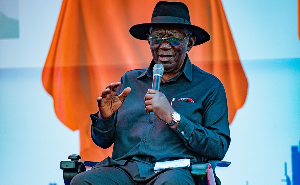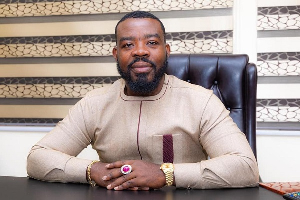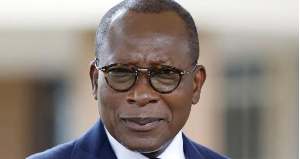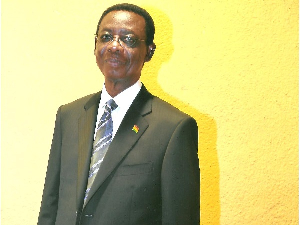SASSUOLO, Italy — Leave Piazza Piccola on the via Giuseppe Mazzini side and visitors to Sassuolo have two options. They can go left and view Palazzo Ducale, the duke’s palace, with its remarkable frescos and a fishpond that has to be seen to be believed. Or turn right for the Ezio Ricci stadium and see a “Prince” instead.
A prince who would be king, judging by the title of the rap video Kevin-Prince Boateng dropped on Aug.16, the night before the Serie A season began. The video has been watched 1.7 million times in the two months it has been on YouTube; if every view is unique that’s 42-and-a-half times the population of Sassuolo!
“Of course I’m crazy happy about it, that people like it and so many people viewed it,” Boateng says, “and I want to thank the fans because it’s not normal. It’s just the way I am. I just want to do stuff. I do it and I don’t care if it goes bad or good. I just want to do it for myself because I want to look back one day and say: Yeah, I did that. I did that and I don’t regret it.”
(All that is left to do now is organise a rap battle between “PRIN$$ Boateng” and Atalanta goalkeeper Pierluigi Gollini — AKA “Gollorius” — before Sassuolo play the Bergamaschi at the end of December.)
There is little mystery, then, as to who sets the playlist in the Sassuolo dressing room: “I do,” Boateng says with a proud nod. His music taste is varied and not just limited to rap.
“My mum and dad used to listen to a lot of R&B and soul, so this was the way I grew up,” he says. “Hip-hop of course. But then as I grew older I started listening to everything. It comes with the moment. Sometimes I wake up and I’m a little bit grumpy and I listen to soul. Sometimes I wake up and I need some spirit so I listen to rock and roll. It depends on the mood I’m in.”
Meanwhile, no one at Sassuolo is ever in the right frame of mind for the noise blaring out of the car or headphones of goalkeeper Andrea Consigli.
“He listens to hard techno music,” Boateng jokes. “You have to love it. We’re 25 or 26 players and it’s just him. He loves it, so he will never put music on in the dressing room.”
The vibes in this part of Emilia Romagna are feel-good at the moment and Prince looks at home here.
“I love Italy,” he says. “I always said that some part of me is Italian since I moved to Milano. I love the people [Boateng’s wife Melissa Satta is Italian]. I love the country, I love everything about it so there was no doubt that one day I wanted to come back.”
Why Sassuolo, in particular? Well, Boateng recommends the restaurant between here and Maranello, the home of Ferrari, which serves arguably the best pasta in the world: “I went down to the kitchen and I hugged the woman because she cooks so good,” he says when talking about the lady that seven-time Formula One world champion Michael Schumacher used to call his second mother.
But Boateng’s motives are mainly football-related. Unprompted, he waxes lyrical about his manager, Roberto de Zerbi. Sassuolo has a reputation for identifying the next big thing in Italian coaching. Ten years ago Massimiliano Allegri got the Neroverdi into the second division for the first time in their history, before Eusebio Di Francesco guided them into the top flight and Europa League.
Since then, one has reached the Champions League final twice with Juventus and the other guided Roma to a semifinal. Their former club thinks they’re onto another winner with De Zerbi.
“[Sassuolo] made an unbelievable choice to get [him],” Boateng says, “because I think he’s a young, very ambitious coach, who has a lot of energy and he was one of the biggest reasons that I came here. He called me five or six times a day and told me you have to come here. I met him one time in Milan and we had a good talk and I said I want to work with this guy because he’s a crazy genius.
He is the only coach, who I have ever worked with who has solutions for every single player on the field.”
That is praise indeed, coming from someone who has played under Jurgen Klopp, Massimiliano Allegri, Quique Setien and Niko Kovac.
“It’s like, say with Allegri… he is a great coach,” Boateng continues. “Allegri was a midfielder so he knows the solution for a midfielder but maybe not for the strikers, not so much for the defenders, like other staff members who maybe take care of it. First of all, De Zerbi wants to do everything alone. He’s very 24 hours, I think he doesn’t even sleep, and he has solutions for the goalkeeper. He was never a goalkeeper, I don’t understand how he knows what the goalkeeper has to do with the ball, without the ball, the defenders, the midfielders.
“He gives you six solutions every time you have the ball. You have six solutions to pass the ball, that’s very impressive, I’ve never seen that before, but this means he’s just working 24 hours to get these solutions for your players so, even if you speak to other players everybody says: ‘This is unbelievable’. When you have the ball you know exactly what to do, and if we do what he says usually we play good and we win.”
Sassuolo upset Inter on opening night and went to Juventus as top scorers in an unlikely top of the table clash in mid-September. Boateng has excelled in the false nine role he played at Las Palmas.
“[De Zerbi] wants me to come a little bit deep to put the other players in front of the goal and then if I have the possibility of course to score,” he explains. “The most important thing is to help the team to come in front of the goal with one-two passes, I drop down or I give them space, because for defenders it’s always difficult to have a false nine because they don’t have a direct player against them, so they don’t know exactly what to do.
“[De Zerbi] picked every player he brought in especially because he knows how he wants to play, he brought me in otherwise he could have brought someone in who is a real striker who would have just stood in front. He brought me in because he knows I am a midfielder usually so I have the mentality of a midfielder so I give him that. It’s like a wall, you pass it and get it back or I put it in the space, that’s exactly what he’s asking.”
Signing Boateng — one of only eight players to score in each of Europe’s top four leagues, he was a Scudetto winner with Milan, FA Cup finalist with Portsmouth, Puskas Award nominee with Las Palmas and DFB-Pokal winner with Eintracht Frankfurt — was principally about mentoring and improving a young team, as well as profile.
“They saw my last two years where I played decent football and I think they needed a personality, you know [someone] with character, who is known everywhere, or to maybe just bring up the [profile of the] club a little bit more. That’s what Las Palmas did with me,” Boateng says.
Outside the window is a glimpse of Sassuolo’s humble origins. The club’s old stadium, the 4,000 seater Ezio Ricci, is now their training ground. They rented the Braglia in Modena during their time in the second division before buying the Stadio Giglio in Reggio Emilia, which they rebranded the Mapei Stadium following promotion to Serie A.
It means Sassuolo are one of the few clubs in Italy to own their own ground and their story is extraordinary. In 2002, they were on the brink of going bust when Giorgio Squinzi paid €35,000 for the club after deciding to swap cycling — his Mapei team dominated the sport for a decade, triumphing at Paris-Roubaix five times and winning the Giro d’Italia — to try his luck at football.
Mapei Sport, a centre of excellence in sport science that was set up originally for the cycling team, remains at the disposal of the football club while the new, €10m state-of-the-art training ground, Ca Marta, nears completion on the edge of town.
“I think it’s very similar to a club we have back in Germany, Hoffenheim, where I have a lot of friends,” Boateng says. “They played there when they were in the third league. It’s like a fairy tale.”
And no fairy tale is complete without a Prince.
Sports Features of Friday, 23 November 2018
Source: kwese.espn.com
FEATURE: Journeyman Boateng the unlikely ‘Prince’ in Sassuolo’s Serie A fairy tale
Entertainment












